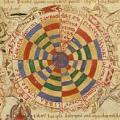32 - Frisbee Sheffield on Platonic Love
Posted on
Frisbee Sheffield, an expert on Plato's Symposium and Phaedrus, chats to Peter about love and friendship in the erotic dialogues.
Themes:
Further Reading
• F.C.C. Sheffield, Plato's Symposium: The Ethics of Desire (Oxford: Clarendon Press, 2006).
• J. Lesher, D. Nails, and F.C.C. Sheffield (eds), Plato's Symposium: Issues in Interpretation and Reception (Cambridge, MA: Harvard University Press, 2006).







Comments
Audio again
Just a quick note to apologize about the noise in the background on this interview -- it's a fan that we couldn't figure out how to turn off!
The History of Philosophy...
The History of Philosophy... without any pants.
tragidians writing comedy?
Notice he wasn't making the case for the other way round and that the comic playw fell asleep before the tragedian
Tragedy and Comedy Puzzle
Hey Mr. Adamson,
Budding fan of the podcast.
I think the puzzle that socrates proposed at the end of the Symposium is an attempt by Socrates to explain that if you know what love is, you should be able to understand the entierty of its specturm. And that he uses the tragedy and comedy line as a metaphor to explain this. Like how a good debater is able to argue for and against both sides of an issue to show understanding, Socrates is comparing the total understanding of love to a writer's complete understanding of writing. If the writer can write a good tragedy and convey every elements of despair within the work, he/she should be able to understand the elements of laughter as well; because only then would the writer be rounded and a "good/virtuous writer".
In reply to Tragedy and Comedy Puzzle by CJ
Tragedy and comedy
Hi budding fan! I think you make a good point there - one might compare it to his suggestions elsewhere, like in the Charmides and maybe the Republic, that philosophy too should be systematic, so that if you know one thing you would also know other things and possibly even all things. Of course in this case if we want to know what Plato thinks of comedy and tragedy there is plenty of other evidence to consider, like the Republic and (a dialogue I didn't really touch on in the podcast) the Ion.
Add new comment